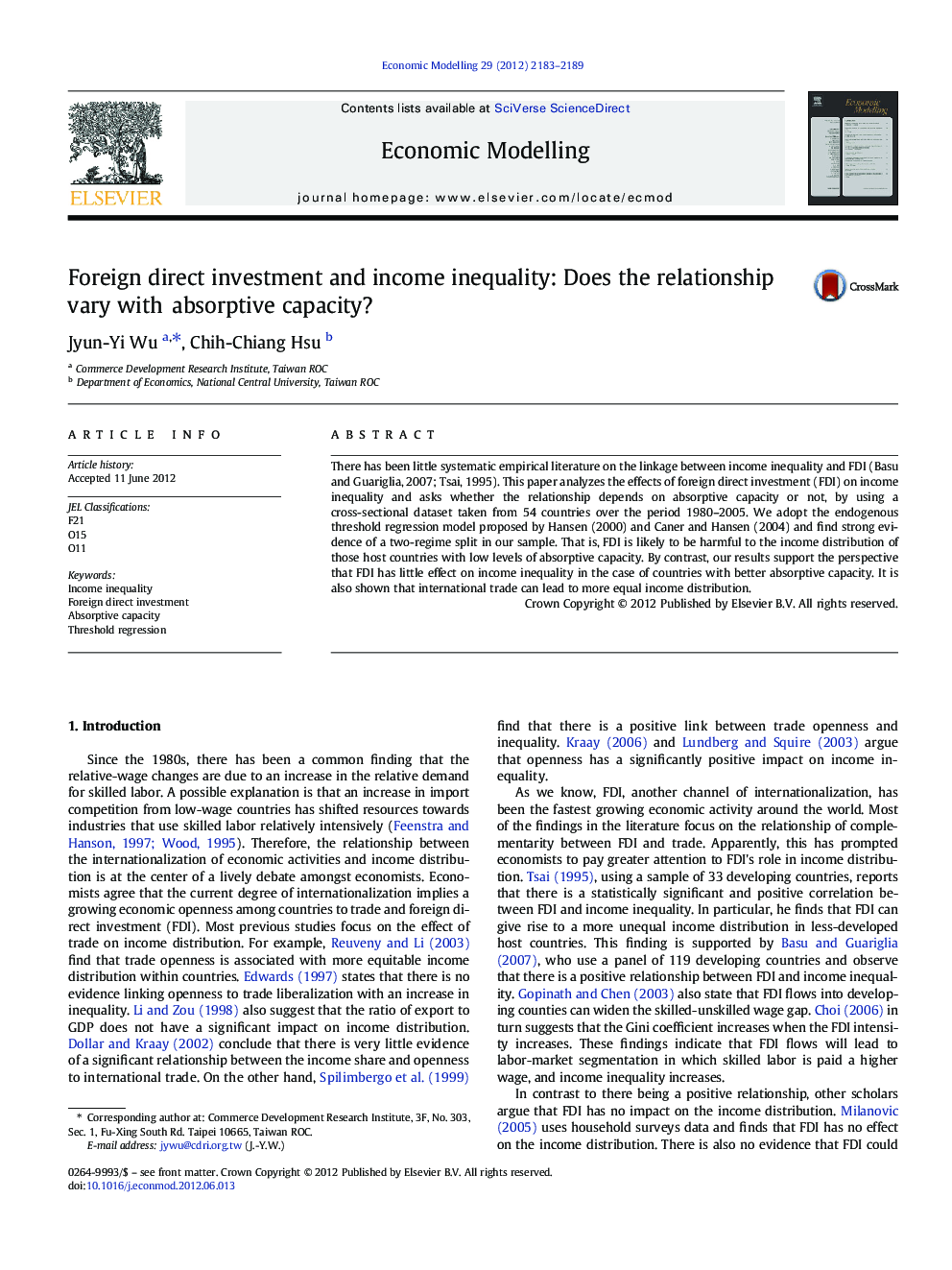| Article ID | Journal | Published Year | Pages | File Type |
|---|---|---|---|---|
| 5055071 | Economic Modelling | 2012 | 7 Pages |
There has been little systematic empirical literature on the linkage between income inequality and FDI (Basu and Guariglia, 2007; Tsai, 1995). This paper analyzes the effects of foreign direct investment (FDI) on income inequality and asks whether the relationship depends on absorptive capacity or not, by using a cross-sectional dataset taken from 54 countries over the period 1980-2005. We adopt the endogenous threshold regression model proposed by Hansen (2000) and Caner and Hansen (2004) and find strong evidence of a two-regime split in our sample. That is, FDI is likely to be harmful to the income distribution of those host countries with low levels of absorptive capacity. By contrast, our results support the perspective that FDI has little effect on income inequality in the case of countries with better absorptive capacity. It is also shown that international trade can lead to more equal income distribution.
⺠We use absorptive capacities to distinguish between different groups of countries. ⺠We employ the endogenous threshold regression. ⺠Our results show that there indeed exists a nonlinear effect. ⺠We find that an effective infrastructure policy can alleviate income inequality.
